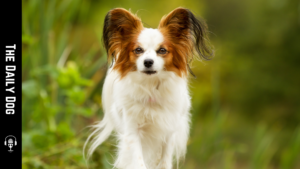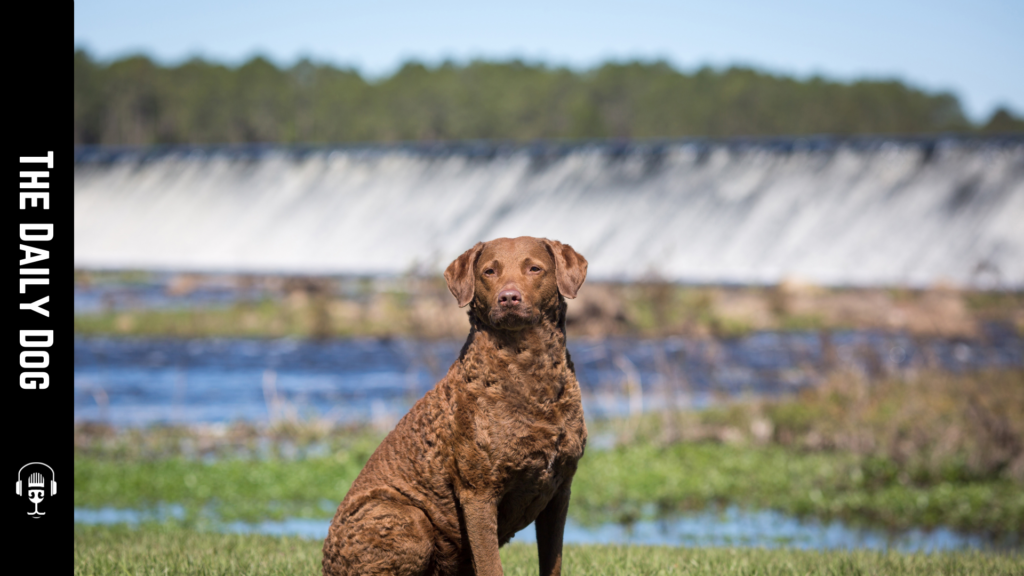The Chesapeake Bay Retriever, often affectionately known as the “Chesapeake,” is a breed that embodies strength, intelligence, and loyalty. Renowned for its rich history and remarkable abilities, this breed has captured the hearts of dog lovers around the world. In this article, we will explore the characteristics, history, care, and training of the Chesapeake Bay Retriever, illuminating why it makes an excellent family pet and a devoted working dog.
A Brief History of the Chesapeake Bay Retriever
Originating in the Chesapeake Bay area of Maryland and Virginia in the early 19th century, the Chesapeake Bay Retriever was developed to assist hunters in retrieving waterfowl from the rugged marshlands. The breed is a mix of several types of retrievers, including the now-extinct Lesser Newfoundland, and was specifically bred to withstand the cold waters and harsh conditions of the bay.
The Chesapeake’s remarkable swimming ability, coupled with its keen sense of smell and strong work ethic, made it a favorite among waterfowl hunters. This breed not only excelled in retrieving but also developed a natural instinct for tracking and marking game.
Physical Characteristics
The Chesapeake Bay Retriever is a medium to large-sized dog, typically weighing between 55 to 80 pounds. Males are generally larger than females. They have a distinct appearance characterized by a broad head, muscular build, and a thick, waterproof coat that comes in various shades of brown, ranging from light to dark.
One of the Chesapeake’s most notable features is its unique coat, which consists of a dense, oily layer that protects the dog from cold water and harsh weather. The breed has webbed feet, which enhance its swimming capabilities, making it an exceptional water dog.
Temperament and Personality
Chesapeake Bay Retrievers are known for their friendly and outgoing nature. They are intelligent dogs that are eager to please, making them highly trainable. However, their independent streak can sometimes pose challenges during training. Consistent, positive reinforcement techniques work best with this breed.
These dogs are incredibly loyal to their families and tend to form strong bonds with their human companions. They are protective and can serve as excellent watchdogs, alerting their owners to any potential dangers. Despite their protective instincts, they are generally good with children and can coexist peacefully with other pets if properly socialized.
Exercise and Activity Needs
The Chesapeake Bay Retriever is an active breed that requires regular exercise to maintain its physical and mental health. Daily walks, playtime, and swimming sessions are essential to keep them happy and engaged. This breed thrives on activities that challenge both their body and mind, such as fetching games and obedience training.
If you live in an area with access to water, your Chesapeake will benefit immensely from swimming. Not only does it provide excellent exercise, but it also taps into their natural instincts. Keep in mind that these dogs have a high energy level and may become bored or destructive if not given enough physical activity.
Grooming and Care
Caring for a Chesapeake Bay Retriever involves regular grooming to keep their coat healthy. While their waterproof coat is relatively low-maintenance, it does benefit from occasional brushing to remove loose hair and prevent matting. Bathing should be done as needed, especially if your dog spends time in muddy or dirty environments.
Dental hygiene is also crucial for this breed. Regular teeth brushing and dental check-ups will help prevent gum disease and maintain overall health. Additionally, routine nail trimming and ear cleaning are essential parts of their grooming schedule.
Health Considerations
Like all breeds, the Chesapeake Bay Retriever is predisposed to certain health issues. Responsible breeding practices can help reduce the risk of genetic conditions. Common health concerns for this breed include hip dysplasia, elbow dysplasia, and certain eye conditions.
Regular veterinary check-ups, a balanced diet, and appropriate exercise can contribute significantly to your dog’s overall health and longevity. It’s essential to monitor their weight, as obesity can lead to various health problems.
Training Tips for Chesapeake Bay Retrievers
Training a Chesapeake Bay Retriever can be a rewarding experience. Here are some effective tips to ensure successful training:
Start Early: Begin training your Chesapeake as a puppy. Early socialization and obedience training are crucial for developing a well-rounded adult dog.
Use Positive Reinforcement: This breed responds best to positive reinforcement methods. Use treats, praise, and playtime as rewards to motivate your dog.
Be Consistent: Consistency is key when training a Chesapeake. Use the same commands and reinforce them regularly to help your dog understand what is expected.
Keep Sessions Short and Fun: Chesapeake Bay Retrievers can lose interest quickly. Keep training sessions short, engaging, and fun to maintain their focus.
Incorporate Variety: Introduce different activities and tricks into your training routine to keep your dog mentally stimulated and excited about learning.
The Chesapeake Bay Retriever as a Family Pet
Chesapeake Bay Retrievers are not just excellent working dogs; they also make wonderful family pets. Their strong bond with family members, combined with their playful nature, makes them a great addition to any household. Here are some reasons why a Chesapeake Bay Retriever could be the perfect companion for your family:
1. Great with Kids
Chesapeakes are known for their gentle disposition and patience with children. They thrive in an environment where they can interact with kids, participate in play, and even act as a protective presence. Teaching children how to interact with the dog respectfully can foster a lifelong bond that benefits both parties.
2. Loyal and Protective
These dogs have a natural instinct to protect their loved ones. Their loyalty makes them excellent guardians for families. While they may be cautious with strangers, they are unlikely to be aggressive without cause. Proper socialization from a young age will help them distinguish between friend and foe.
3. Adaptable to Various Lifestyles
Whether you live in a rural area with plenty of space for your dog to roam or a smaller home in the city, Chesapeake Bay Retrievers can adapt well. They require regular exercise, but as long as they receive sufficient physical activity and mental stimulation, they can thrive in various living situations.
4. Intelligent and Eager to Learn
Chesapeakes are highly intelligent and enjoy engaging in activities that challenge their minds. Teaching them new tricks or commands can be a fun way to bond and provide mental stimulation. Their eagerness to please makes them quick learners when trained with patience and consistency.
5. Versatile Working Dogs
Originally bred for hunting, Chesapeake Bay Retrievers excel in various roles beyond being family pets. They can be trained as service dogs, search and rescue dogs, or therapy dogs, showcasing their versatility and adaptability. This makes them an excellent choice for families looking for a multi-talented canine companion.
Nutrition and Diet
Feeding your Chesapeake Bay Retriever a balanced diet is crucial for their overall health and well-being. Look for high-quality dog food formulated for their size and energy level. The diet should include:
- High Protein: Essential for muscle development and maintenance.
- Healthy Fats: Important for skin and coat health, as well as energy.
- Carbohydrates: Provide necessary energy for their active lifestyle.
Always consult your veterinarian for specific dietary recommendations and portion sizes tailored to your dog’s age, weight, and activity level. Regularly monitor their weight and adjust their diet as needed to prevent obesity.
Conclusion
The Chesapeake Bay Retriever is a unique breed that brings joy, loyalty, and companionship to families around the world. With their rich history as skilled waterfowl retrievers, they have the perfect blend of intelligence, strength, and a loving disposition. Whether you are looking for an active partner for outdoor adventures, a loyal family member, or a versatile working dog, the Chesapeake Bay Retriever could be the ideal choice.
By providing them with proper training, socialization, and care, you can ensure that your Chesapeake thrives in your home. Their playful spirit and protective nature make them not just pets but beloved family members who will fill your life with love and laughter.
If you’re considering welcoming a Chesapeake Bay Retriever into your home, be prepared for a rewarding experience filled with loyalty, adventure, and the unconditional love that only a dog can provide. Embrace the journey of raising this remarkable breed, and you’ll find a loyal companion that will stand by your side through thick and thin.
We offer a FREE Strategy Call.
Click on the graphic to learn more
Read More

Discovering the Papillon: A Delightful Companion with Wings









